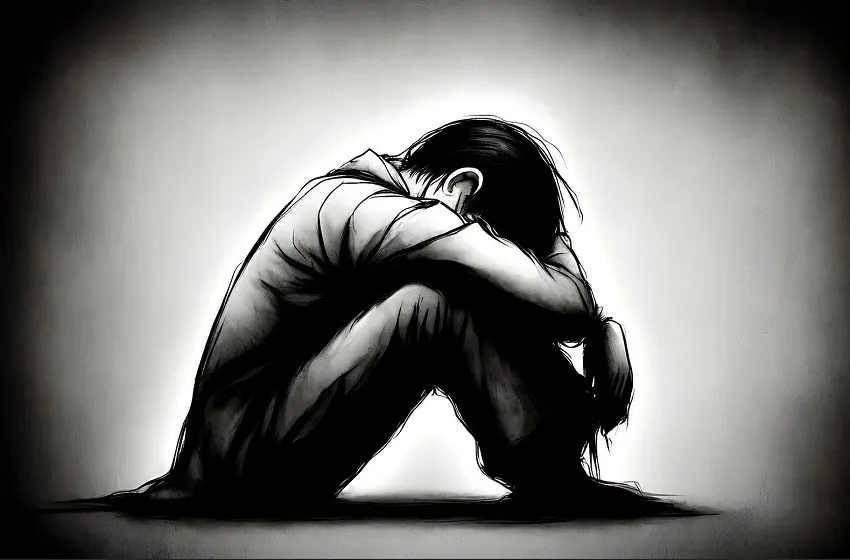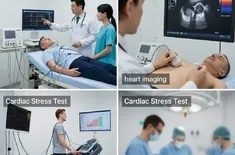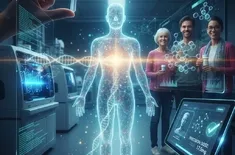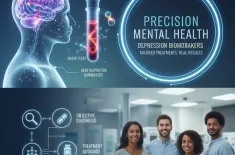Depression is a common mental health condition that affects mood, sleep, appetite, and energy levels. Learn about its symptoms, causes, and effective treatment options. Find resources for support and self-care to manage depression and improve your well-being.
Depression is a complex and multifaceted mental health condition that affects millions around the world. It is characterized by persistent feelings of sadness and a lack of interest or pleasure in previously enjoyable activities. Understanding depression, the various forms it can take, its symptoms, and the treatment options available is crucial for those affected and for society at large to reduce stigma and promote empathy.
What is Depression?
Depression goes beyond temporary feelings of sadness or grief. It is a serious mood disorder that impacts how an individual feels, thinks, and manages daily activities. Depression causes feelings of sadness and/or a loss of interest in activities once enjoyed and can lead to a variety of emotional and physical problems. It can decrease a person’s ability to function at work and home, affecting interpersonal relationships and overall quality of life.
For a diagnosis of depression, symptoms must be present for at least two weeks. It’s essential to differentiate these symptoms from the normal emotional experiences of sadness, stress, or grief which, although distressing, usually lessen with time.
Depression vs. Depressive Disorder
While often used interchangeably, the terms "depression" and "depressive disorder" can have nuanced differences. "Depression" is often used as a broad term encompassing various depressive symptoms that can appear due to different reasons. On the other hand, "depressive disorder" refers to clinically diagnosed conditions that meet the specific criteria outlined in diagnostic manuals like the DSM-5 (Diagnostic and Statistical Manual of Mental Disorders).
Depressive disorders are distinct clinical conditions including major depressive disorder (MDD), persistent depressive disorder (PDD), and others, each with specific diagnostic criteria. These disorders are more severe and persistent than the general feeling of being "depressed."
Types of Depression
- Major Depressive Disorder (MDD): This is characterized by a combination of symptoms that interfere with a person’s ability to work, sleep, study, eat, and enjoy once-pleasurable activities. It is commonly referred to as clinical depression and includes episodes of severe symptoms that must last at least two weeks.
- Persistent Depressive Disorder (PDD): Previously known as dysthymia, PDD is a less severe but chronic form of depression. Individuals experience a depressed mood for most of the day, for more days than not, over at least a two-year period. While symptoms are not as intense as major depression, their longevity can significantly impair quality of life and functioning.
- Bipolar Disorder: This disorder involves cycles of depression and mania or hypomania. During depressive episodes, individuals experience symptoms typical of major depressive disorder. However, these are alternated with periods of elevated mood and heightened energy and activity levels, sometimes unrealistic or risky in nature.
- Seasonal Affective Disorder (SAD): This type of depression occurs at a specific time of year, usually in the winter when there is less natural sunlight. It tends to resolve during the sunnier months. Symptoms are similar to major depression, including feelings of hopelessness, withdrawal from social interactions, and fatigue.
- Postpartum Depression: More severe than the “baby blues” that many women experience after giving birth, postpartum depression involves full-blown major depression during pregnancy or after delivery (postpartum). Feelings of extreme sadness, anxiety, and exhaustion make it difficult for these new mothers to complete daily care activities for themselves and/or for their babies.
- Premenstrual Dysphoric Disorder (PMDD): This is a severe form of premenstrual syndrome (PMS). It includes both emotional and physical symptoms and typically occurs a week or two before a woman’s menstrual period. Symptoms include extreme mood swings, irritability, depression, and anxiety.
Symptoms of Depression
The symptoms of depression can vary widely but commonly include:
- Persistent sad, anxious, or "empty” mood
- Loss of interest or pleasure in hobbies and activities once enjoyed
- Feelings of hopelessness or pessimism
- Irritability
- Feelings of guilt, worthlessness, or helplessness
- Decreased energy or fatigue
- Difficulty concentrating, remembering, or making decisions
- Insomnia or oversleeping
- Appetite or weight changes
- Thoughts of death or suicide, or suicide attempts
- Aches or pains, headaches, cramps, or digestive problems without a clear physical cause and/or that do not ease even with treatment
Treatment for Depression
- Medication: Antidepressants are commonly used to treat depression. Selective serotonin reuptake inhibitors (SSRIs) are typically the first line of treatment due to their efficacy and lower side effect profile compared to older antidepressants. Other classes, such as serotonin-norepinephrine reuptake inhibitors (SNRIs), tricyclic antidepressants, and atypical antidepressants, may also be used.
- Psychotherapy: Cognitive-behavioral therapy (CBT) focuses on changing negative thought patterns and behaviors that contribute to depression. It helps individuals learn new ways of thinking and coping strategies to deal with life’s challenges. Interpersonal therapy (IPT) focuses on improving interpersonal relationships and communication patterns, which can also alleviate depressive symptoms. Other therapeutic approaches, like psychodynamic therapy, can also be effective, focusing on understanding and resolving internal psychological conflicts contributing to depression.
- Lifestyle Modifications: Incorporating lifestyle changes can significantly benefit those with depression. Regular physical activity boosts the production of endorphins and can alleviate depressive symptoms. A balanced diet, rich in nutrients, can also positively influence mood and energy levels. Adequate sleep is crucial, as sleep deprivation can exacerbate depressive symptoms. Mindfulness practices and stress-reduction techniques, such as yoga and meditation, can be valuable tools in managing depression.
- Support Groups and Community Services: Engaging with support groups can provide a sense of community and understanding. Sharing experiences and connecting with others who face similar challenges can reduce isolation and provide emotional support. Community services and mental health forums can offer valuable resources and information.
- Electroconvulsive Therapy (ECT): ECT is a medical treatment most commonly used in patients with severe major depression or bipolar disorder who have not responded to other treatments. ECT can provide relief from symptoms when other treatments have failed. Despite its portrayal in the media, ECT is a safe and effective treatment for depression.
- Transcranial Magnetic Stimulation (TMS): TMS is a non-invasive method that uses magnetic fields to stimulate nerve cells in the brain to improve symptoms of depression. It is typically used when other depression treatments haven’t been effective.
- Emerging Treatments: New methods, such as ketamine infusions and esketamine nasal sprays, are being researched and applied for treatment-resistant depression. These methods have shown rapid-acting effects in reducing symptoms in some individuals who have not responded to other treatments.
Seeking Help: If you or someone you know is struggling with depression, seeking professional help is crucial. Early intervention can lead to better outcomes. Treatments can be personalized, integrating various methods for comprehensive care. Mental health professionals can provide a diagnosis and create a tailored treatment plan suitable for individual needs.
Conclusion
Depression is a multifaceted disorder with a range of impacts on individuals, but understanding and addressing it through effective treatments and supportive measures can offer hope and recovery pathways. With ongoing research and increasing awareness, there is a continuous improvement in understanding and managing depression, providing tools to help those affected lead fulfilling lives. Encouraging open conversations about mental health and reducing stigma are vital steps in supporting those with depression, fostering environments where seeking help is normalized and accessible.



































